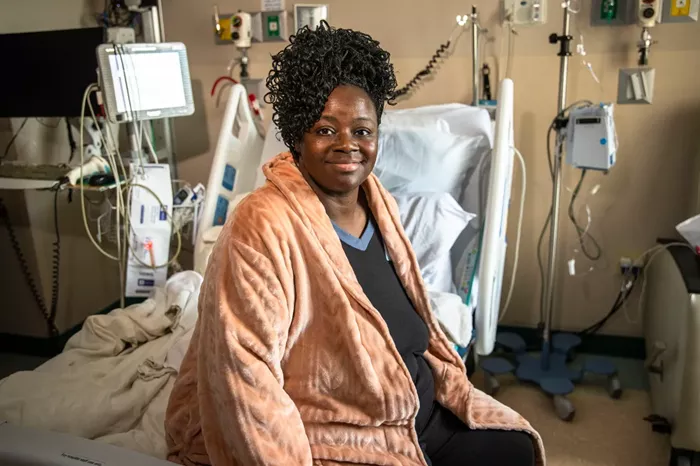CHARLESTON, S.C. — For Page Campbell, a 40-year-old mother of two, years of weight struggles led her to try Wegovy, a prescription weight-loss injection her doctor recommended before she could be considered for bariatric surgery.
“I’ve struggled with my weight for so long,” said Campbell, who works as a shipping manager at Michaels. “I’m not opposed to trying anything.”
About a month into the treatment, she hadn’t noticed any negative side effects. Though she doesn’t track her weight at home, Campbell remained optimistic. “It’s going to work because I’m putting in the work. I’m changing my eating habits. I’m exercising,” she said.
Wegovy is part of a class of drugs known as GLP-1 agonists, which have revolutionized obesity treatment. These medications, however, come at a high cost, and many insurers—public and private—decline to cover them due to their price.
Campbell’s access to Wegovy was made possible by South Carolina’s decision in late 2024 to allow Medicaid coverage for GLP-1s used for weight loss. But South Carolina is among the few states offering this benefit. According to Liz Williams, a policy expert at KFF, no other states have joined since then. She said upcoming federal budget decisions may deter states from expanding coverage further.
Medicare does not cover GLP-1s for obesity, although it does for conditions like diabetes and cardiovascular disease. In April, the Trump administration announced it would not move forward with a Biden-era proposal to expand GLP-1 access to about 7.4 million Medicare and Medicaid enrollees. At the same time, the FDA is preparing to remove cheaper, compounded versions from the market.
Even in states like South Carolina that cover GLP-1s under Medicaid, patients face hurdles. The state Medicaid agency estimates only 1,300 enrollees will qualify under its strict criteria, which include a history of failed weight loss efforts, dietary restrictions, and increased physical activity.
Campbell had to meet several requirements: She submitted six months of records showing she had tried to lose weight through a 1,200-calorie diet and nutrition counseling. Her Medicaid coverage for Wegovy was granted for six months. To continue treatment, her doctor must confirm that she has lost at least 5% of her body weight and that she’s still receiving counseling.
“It’s not just, ‘Send a prescription in and they cover it.’ It’s rather arduous,” said Dr. Kenneth Mitchell, Campbell’s physician and a bariatric specialist at Roper St. Francis Healthcare. “Not a lot of folks are going to do this.”
Despite the obstacles, Campbell remains hopeful. For her, Wegovy is more than a prescription—it’s a step toward a healthier future.
Related Topics:
Jane Seymour Shares Secret Diet That Keeps Her Size 4


